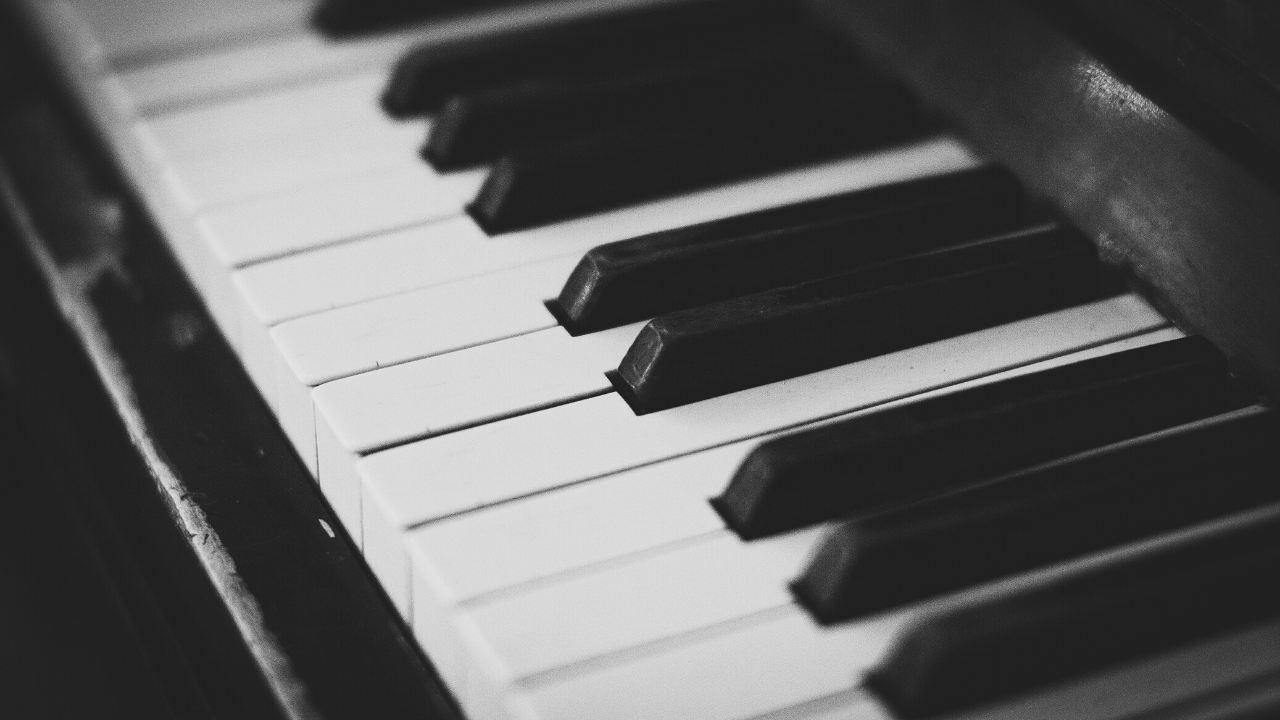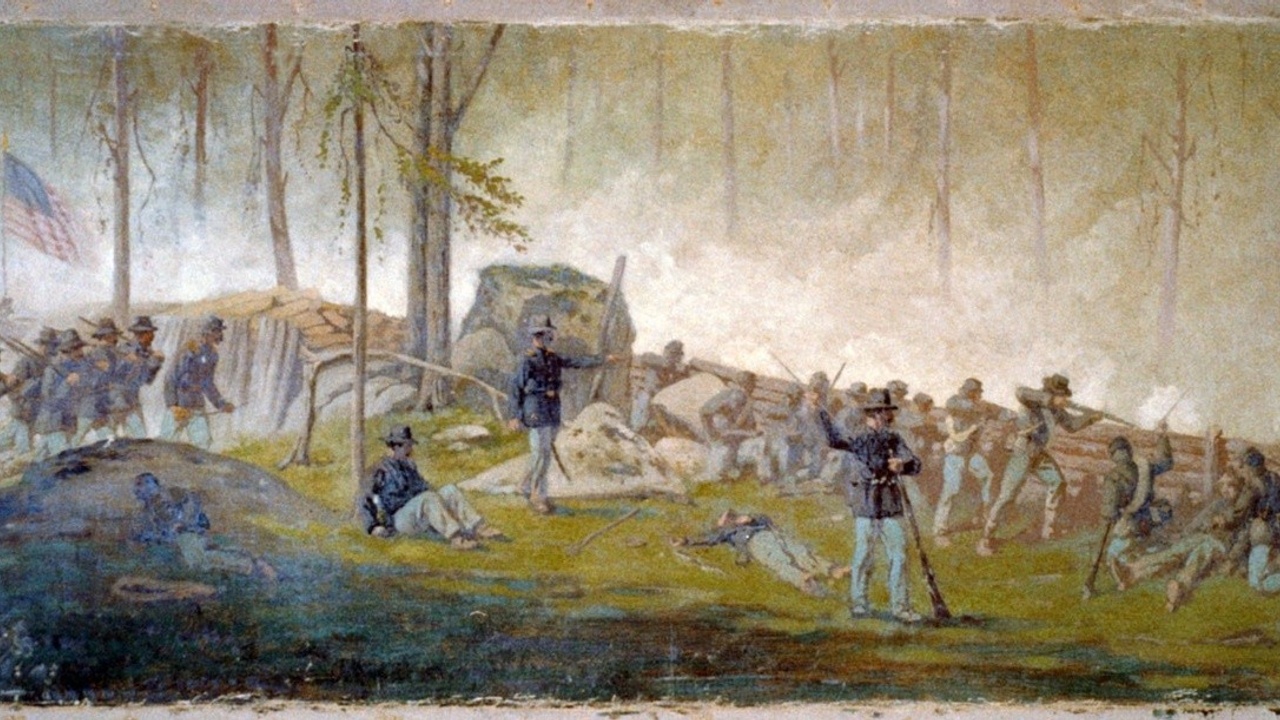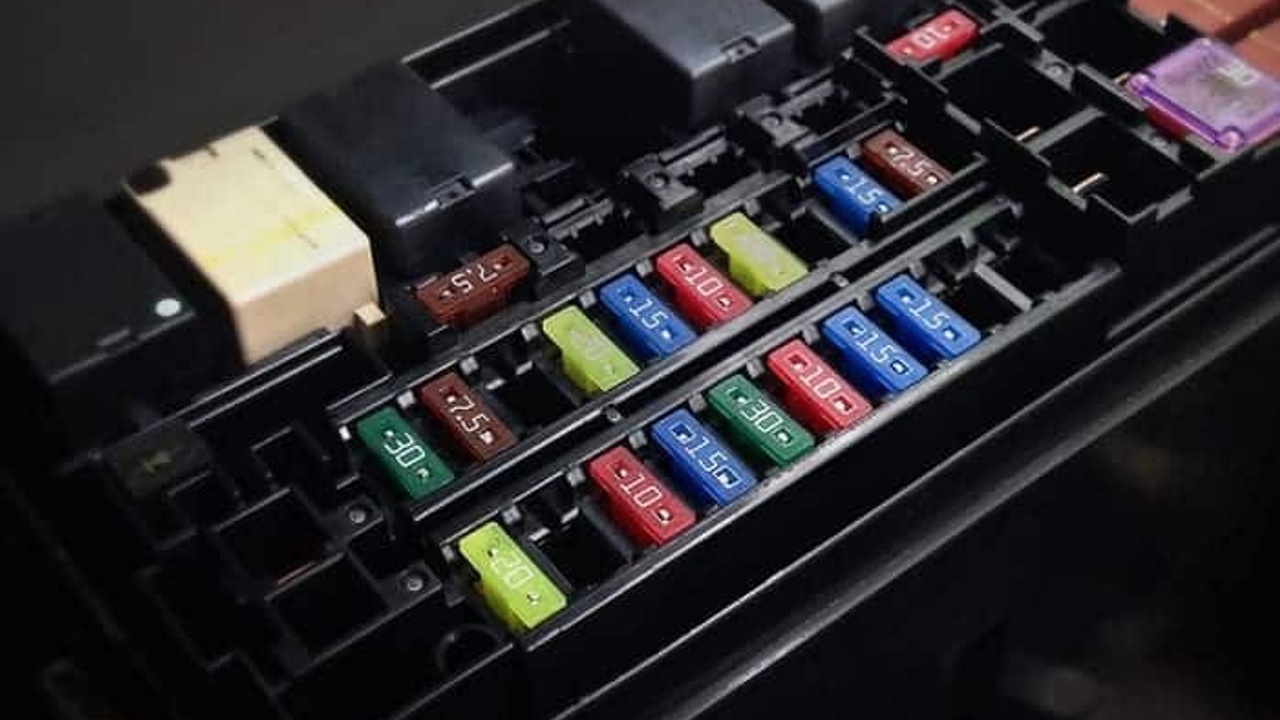
My Mother's Music
Once a week the family followed the Poudre River 40 miles into town. Three sisters sat in the backseat as they wound down the canyon road already rutting itself into their lives. Eyes full of wonder as they took in a town life decades ahead of their treasured world of rustic cabins, fishing stories, and summer vacationers. Because of these weekly drives, my mother began playing the piano.
She was a self-described "sickly mountain girl with asthma." The phrase was a family joke, but maybe its truth explained her talent. Black and white keys were her place to thrive, unaffected by strength or stamina. What did her piano teacher think? Did years of teaching indifferent students meld together into a frequent mixture of missed sharps and botched rhythms? Or did potential simmer beneath plain melodies when she heard the gangly mountain girl play?
It's a well known progression: It begins with the hopeful acquisition of a new instrument, peaks at learning a few tunes, begins to stall as the monotony of practice sets in, and dies its inevitable death as the instrument gets lost in a budding world of new friends and driver licenses. This wasn’t the case for my mom. Music withstood high school’s competing pressure.
The process wasn’t without challenge. Practice went dormant during and after college as she didn’t have her own piano to play regularly. She’d play occasionally when she returned to her parents house, but the piano was largely an afterthought until she had kids. Playing became a reminder that she extended beyond changing diapers and picking up toys.
My mother stayed home with my older brother and me. The path towards idyllic suburban family continued when she became pregnant just before I turned two. A routine checkup at 20 weeks gestation revealed significant problems with the baby’s brain development. Doctors were clear about the problem’s severity but vague about its specific impact. Weeks of questioning and worrying finally culminated when my sister Abby was born. Minutes after her delivery my father watched her chest sporadically pulse up and down.
“Are those hiccups?” he asked anxiously.
“No,” the doctors responded, “Those are seizures.”
Abby’s head was glaringly small. Her face was proportionate and balanced below her forehead, but her entire neurocranium was undersized. She had a small depression the size of a silver dollar on the right side of her forehead that my dad kissed everyday when he left for work. Scoliosis curved her spine like a mug’s handle. Her hands were perpetually clinched. Nevertheless, her beautiful light brown hair grew freely, eventually to the small of her back.
Abby was among the 0.02% of the population born with severe microcephaly - a condition where the head circumference is smaller than normal because of improper brain development.
She was unable to hold her head up, wave her hand, or track movement with her eyes. Occasionally she would bend one corner of her mouth up into a faint smile. Her equivalent of a spoken word was when a deep sigh produced just enough air to pass through her vocal chords and create a fading murmur of contentment. A feeding tube was inserted into her stomach because she couldn’t swallow without choking. Even with supplemental oxygen her inhale was shallow and her scratchy exhale was more from her throat than lungs. Most of her life was spent in a hospital bed in our living room.
I explained to others that Abby had the development of a newborn and doctors believed a good “outcome” would be if she lived two years. I wish someone would have stopped me mid-sentence, grabbed my hand and pulled me out of my rehearsed explanation, “You used the term ‘outcome.’ This isn’t a clinical trial summary. This is your sister.”
Caring for Abby was like translating a silent language. She was non-verbal so facial expressions and breathing patterns were the only indicators of her condition. This uncertainty was compounded by helplessness when a seizure overtook normal brain and body function like a virus infecting a computer’s hard drive. Her eyes quaked with uncertainty until it was over. Her care was constant, but unlike a newborn or toddler, she could offer no babbled word or endearing grin.
Our family life focused on Abby, but it was my mother whose life was consumed -- not in a soccer practice - dance recital - sleepover - ferrying taxi sort of way. But in a meet with doctors - administer suppository - suction phlegm from her mouth - wonder what's left to offer my sons and husband sort of way. Her days were exhausting - physically lifting and moving Abby and mentally keeping track of a shifting schedule of medications. Worry pulsed over her own ability, the state of our family, and the day her baby girl would die.
Hard work was bedrock in my mother. Her parents bought and operated a mountain resort after World War II. They rented rustic cabins and ran a restaurant every summer from Memorial Day to Labor Day. My mom and her two sisters grew up immersed in this wonderful demanding place. They learned gracious hospitality from my grandmother. They learned tireless work ethic from my grandfather who managed the resort and worked a full-time job two hours away. The powerful and literal paradigm of roll up your sleeves and grit it out - required for feeding 100 people fried chicken on Sunday afternoon had not prepared her for three AM when her daughter’s body was arched and contorted with agitation.
My mother followed the key change and began to ask others for help. Friendships were formed with other parents of disabled children. Local organizations provided short term care for my sister allowing my mom to run errands or have a free afternoon. Good friends took my brother and me camping. Over time, the care that drained my mom’s body nourished her soul, not in a steely affirmation of her work ethic and independence, but in the humility of inviting others into her need.
Others can say they grew up on Clapton or Cash, but my childhood centered on my mother's music. Most nights my brother, sister, and I fell asleep to the sound of her playing cherished hymns. These weren't rigid practice sessions to build technical proficiency. She willingly took shouted requests from tired and tiring sons. Her music gave rest - literal for us kids and a needed respite for my mom.
After my brother and I drifted off to sleep, my mom would continue playing for Abby. These concerts for one were some of Abby’s best moments. Her clenched jaw loosened. The labored wheeze of a breath - odd proof of comfort - would return. Blue eyes danced on a face too familiar with discomfort. Care for Abby was perplexing - I don’t even know what she needs right now? Am I making a difference at all? My mom knew those self doubting questions better than anyone. Music was the one consistent treatment that soothed Abby, and in doing so affirmed my mom’s ability to care for her daughter.
My sister was both fragile and resilient. When she was five a mild case of pneumonia escalated quickly and sent her lungs into a critical state. She spent weeks in the hospital and her health only withered. The prognosis worsened and the doctor told my parents that a hospital is no place for a little girl to die. We packed a picnic lunch and headed out the hospital door towards a nearby park. Unaware of the doctor’s inference and weight of the situation, I turned to my mom, and misworded hopefully,
“Oh Mom, all Abby needs is a fresh of breath air.”
As my brother and I played on slides and swings, my sister rallied. The two dimensional pale pigment left her face and her breathing lengthened. She returned home two days later.
My parents constantly reminded us: “One day Abby will die.” There was no denying or sugar-coating this reality. Naming the elephant felt more disarming than enraging. The clarity lightened me but burdened my parents. Their daughter was already grafted into their identity. They could see that death happens to a family and community, not just an individual.
A piano key causes a hammer to strike a specific string, but it also lifts a damper off the string, allowing it to vibrate and produce sound. Releasing the key lowers the damper back onto the string and ends the note. The far right foot pedal is the sustain pedal that raises all internal dampers. This enables notes to blend and resonate as long as the pedal is pressed.
My mom half joked about being unable to improvise: "I need notes and sheet music," she'd insist with a grin. But it wasn't true. Written music may have been the base, but that's not all I heard. Her playing was never a flawless display that resembled a math proof. Keys struck string and story. Pain and sorrow overlapped and echoed. Gratitude and doubt formed unlikely chords. The sustain pedal was applied to more than the piano. She knows the best creation requires open, dirty palms. What’s deepest within isn’t easily sentenced away.
John Cage was an avant garde 20th century American composer. I recently watched a recorded performance of his piece titled 4’33”. It began with a tuxedo clad pianist bowing after his introduction. He sat down at a Ferrari like grand piano, sleek and powerful, craving to be revved into a high octane performance of a classical standard. The pianist shifted his weight on the bench, and arranged his music above him. Then he shut the lid over the piano’s keys, and sat in silence for four minutes and thirty three seconds. Just as this gimmick helps the listener appreciate that it is silence as much as sound that makes music meaningful, playing for a seemingly unresponsive child taught my mother that being must inform doing.
Tacet is a musical term to instruct the musician not to play during a long section of the piece. The music continues despite the musician’s silence. Abby died on a Thursday afternoon in June, at age 10, peacefully in her sleep, attended only by a single caregiver.
My mother played benefit concerts to raise money for the organizations that helped our family care for Abby. Momentum grew each year as community members underwrote costs, recognition increased, and the total amount raised approached six figures. These weren’t typical concerts. Applause was held until the end of the last piece. The music was a complement, not the centerpiece. Hearing the music was a gateway to a deeper listening. My mom wanted to give the same quality of time that Abby gave her. She's not doing any more of these wonderful visible concerts anymore. There's wisdom in this decision that comes from an understanding of ending, and from knowing her gift well enough to separate it from the praise it produces.
I sat at her last benefit concert with my coat on, still warming up from the December air. Most of the carols and hymns she played fell neatly into my memory. These were songs familiar enough to be my acquaintances. I could anticipate the melody's direction, and was surprised by little. But the unshakable familiarity of this music didn’t weaken my attention. I sat next to my father and felt his smile as we watched the ballet of her hands as they glided and bounced to their precise destination. Her head tilted and flinched as she followed the music. If French composer Claude Debussy is right and “music is the space between the notes,” then my mother played so others might examine the music in their own lives.
As a boy I was unaware to the deeper rhythm of time with Abby. I adored her and being her big brother, but I was too young to recognize her invitation. Now as a father of three, I wish I could sit with her again - in time unfilled but not empty, in quiet louder than my accomplishment. This silence echoes in my mother’s music. Now when I hear her play, I hear a duet.
Jesse French
Restoration Project Chief of Next Steps




